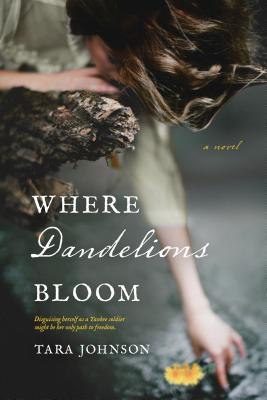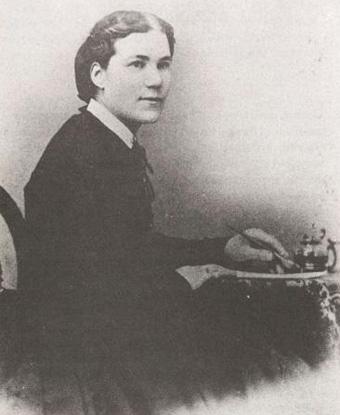It’s 1861, and eighteen year old Cassie runs away from home to avoid the loathsome marriage her drunkard father has arranged for her against her will. With few options open to her and a fervent desire to hide somewhere her father cannot find her, she joins the Union Army—disguising herself as a man. At first an engrossing and action-packed story, Where Dandelions Bloom by Tara Johnson unfortunately seems to completely lose steam about half-way through, letting loose its grip on the suspense and character development it was building up to that point. Notably, Cassie’s secret identity is discovered by a handsome young photographer, and rather than build slowly on the relationship between the two, the author focuses in on their relationship and the story devolves into near-constant romantic drama. I ultimately lost interest completely around the same time phrases like “It was all he could do not to sweep her up in his arms and cradle her like a wounded kitten” started popping up, which seemed jarring against the raw backdrop of the American Civil War. Somehow I find it hard to believe that in the midst of such a bloody war the main characters would act and think the way Johnson renders them.

It’s 1861, (sound familiar?) and Canadian Sarah Emma Edmonds, who went by Emma, was making a living in the United States. Having run away from her birthplace and her abusive father–who had set up an arranged marriage for her–Emma disguised herself as a man, selling Bibles door-to-door. Moved for the Union cause, Emma managed to enlist under her alias of “Franklin Thompson.” Emma nursed wounded soldiers and buried the dead; later she was assigned the task of regimental mail carrier (which was more dangerous than it sounds, as carriers were prone to being ambushed!). Emma’s true story, unfortunately, has ballooned almost to mythical grounds today because of an at least partly fictionalized “memoir” she wrote called Nurse and Spy in the Union Army. In it, she recounts stories of espionage, such as infiltrating a confederate fort disguised as a black man (having used silver nitrate to blacken her face and skin). That said, a serious study of Civil War intelligence by Edwin Fishel notes that both “Emma’s name and alias are missing from Pinkerton’s [head of the Union Intelligence Service] roster of agents; no information attributed to her is found in the thousand pages of Pinkerton reports in the McClellan Papers.” As a fellow soldier’s diary mentions “Franklin” to have been present in camp during the time frame she claimed to have been serving as a spy, it’s more than dubious that she was ever involved in espionage, but unfortunately her memoir is often taken as gospel to this day, despite being riddled with errors. If you want to read the rest of Fishel’s notes about Emma, or are interested in military intelligence of the Civil War, you might enjoy his book, The Secret War for the Union. Whatever the case may be with regard to Emma’s later adventures, she served for two years before deserting (she insisted that she left for fear of being discovered after she contracted malaria), but returned as herself (in woman’s garb) and continued helping the cause as a nurse for the U.S. Christian Commission. I’ve left out many details, so feel free to google up one of the many articles about Emma’s life–though in my opinion facts drawn from her memoir should be taken with a grain of salt.

Tara Johnson has confirmed that Emma was the inspiration for Where Dandelions Bloom. While I may not care for her twist on the true tale, I’m grateful to her for drawing my attention to Edmonds’ singular and eventful life… it’s certainly a unique piece of the patchwork of American history.



